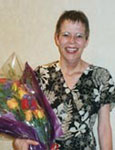Mary Fran Myers Scholarship
Past Winners
The Mary Fran Myers scholarship was established in 2003 to fulfill Myers’ request that qualified and talented individuals receive support to attend the annual Natural Hazards Workshop, ensuring that representatives of all ages, professions, and communities were represented. Previous winners are listed below.
2013 | Mara Benadusi | Hari Krishna Nibanupudi | Barbara Ryan
2012 | Hsien-Ho (Ray) Chang | Mike Kline | Justin Moresco | Judy Sears
2011 | Keya Mitra | Véronique Morin
2010 | Deborah Colburn | Scott Cotton | Peter Hanink | Terri Turner
2009 | Alex Altshuler | Ali Ardalan | Oluponmile Olonilua
2008 | Edy M. Barillas | Monalisa Chatterjee | Charna R. Epstein |
Molly Mowery | Uchenna Okoli
2007 | Steve Samuelson | Saeed Ashraf Siddiqi |Yu Xiao
2006 | Aurélie Brunie | Elenka Jarolimek |Alessandra Jerolleman
2005 | Wei Choong | Ana Pamela Membreno
2004 | Becky Ault
2013 winners are:
Mara Benadusi
 Mara Benadusi is a tenured researcher and lecturer at the Department of Political and Social Science at the University of Catania. She also teaches in the Ph.D. program on Anthropology at the University of Messina, where she is currently supervising doctoral theses on post-disaster emergency response.
Mara Benadusi is a tenured researcher and lecturer at the Department of Political and Social Science at the University of Catania. She also teaches in the Ph.D. program on Anthropology at the University of Messina, where she is currently supervising doctoral theses on post-disaster emergency response.
Benadusi has worked extensively the tsunami that affected Sri Lanka in December 2004. Her work focuses on the educational aspect of disaster response, including how individuals and social groups learn to protect themselves in disasters. Her research deals heavily with vulnerability and resilience, especially the analysis of experiences of “community-based” disaster management and disaster risk reduction.
Mara is currently a member of the RESHAPE Program, funded by the European Commission and co-funded by the University of Catania. RESHAPE involves researchers and professionals concerned with advancing scientific and policy-oriented knowledge about the EU response capabilities towards natural disasters, humanitarian crises and systemic risks, within and outside Europe.
 Hari Krishna Nibanupudi
Hari Krishna Nibanupudi
Hari Krishna Nibanupudi works with International Center for Integrated Mountain Development (ICIMOD) in Kathmandu as a specialist and team leader for Disaster Risk Reduction and Community Resilience. He has previously worked with World Bank Institute as Disaster Risk Reduction consultant and with Oxfam America as a South Asia Disaster Risk Reduction Specialist.
Nibanupudi has implemented large projects related to disaster risk reduction, climate adaptation, and natural resource management. He has commissioned and coordinated more than 30 humanitarian research projects and published more than a dozen disaster risk reduction tool kits, handbooks, training manuals, and videos. Many of these publications focus on gender, development, and disaster management.
Nibanupudi is an active promoter of gender equal approaches in the programs and work culture of ICIMOD. He has been a member of the group’s gender source team and was nominated for the ICIMOD Gender Champion award. Nibanupudi has also assisted the selection process of the Mary Fran Myers Award for contributions to gender inclusive disaster management and research. His formal education is in communication and business management, however, he has also been trained in gender equality, poverty analysis, economics, public policy, environmental education, natural resource management, humanitarian assistance, and humanitarian law.
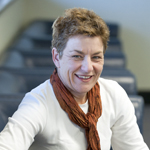 Barbara Ryan
Barbara Ryan
Barbara Ryan is the founder and director of Emergency Media and Public Affairs, a membership organization of disaster communicators. Ryan was drawn into disaster management in 2002 when her job managing a local council communication team required her to work with the Local Disaster Management Committee to keep the community informed of bushfire information. Originally from Toowoomba in Queensland—a city that suffered 10 years of drought before fatal flash floods in 2011—Ryan decided that disaster communication would be her field.
Around the same time, the Queensland Police District Disaster Management Group asked her to set up a communication function at district level. The staff shortages she experienced led her to eventually establish a volunteer communication group of regional public relations professionals. Professionals are trained annually and can be called in whenever disaster strikes. The team was deployed during the disastrous 2011 flash floods and worked on recovery communication in particular.
A former journalist with 25 years in the communication field, Ryan is currently completing a PhD at the University of South Australia on the topic of how people get information during disasters.
2012 Winners
Hsien-Ho (Ray) Chang
 Hsien-Ho (Ray) Chang is a PhD student in Disaster Science and Management at the University of Delaware. Before he began his doctoral studies, Ray spent six years in the Taipei County Fire Department in Taiwan as a fire captain. He was in charge of developing emergency plans for a 13-kilometer tunnel (one of the longest tunnels in Taiwan) and organizing an urban search and rescue team. Chang also wrote several chapters of the 2005 Taiwan National Firefighter’s Handbook. Chang earned his master’s degree from Arizona State University and majored in fire service administration. During his studies in Phoenix, he spent a year working with the Phoenix Fire Department to develop technology to locate new fire stations and collecting and analyzing data from major disaster drills.
Hsien-Ho (Ray) Chang is a PhD student in Disaster Science and Management at the University of Delaware. Before he began his doctoral studies, Ray spent six years in the Taipei County Fire Department in Taiwan as a fire captain. He was in charge of developing emergency plans for a 13-kilometer tunnel (one of the longest tunnels in Taiwan) and organizing an urban search and rescue team. Chang also wrote several chapters of the 2005 Taiwan National Firefighter’s Handbook. Chang earned his master’s degree from Arizona State University and majored in fire service administration. During his studies in Phoenix, he spent a year working with the Phoenix Fire Department to develop technology to locate new fire stations and collecting and analyzing data from major disaster drills.
Chang is interested in disaster response and his dissertation focuses on the Incident Command System. His goal is to develop the theoretical foundation for the ICS that incorporates his experience from Taiwanese and American fire departments and strengthens the practical applications of this system. Chang hopes his practical background and postgraduate studies will bridge the gap between academics and practitioners in the future and believes his Asian heritage and cross-cultural training will benefit disaster management systems in the United States and around the world.
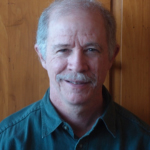 Mike Kline
Mike Kline
Mike Kline is the manager of the Vermont Department of Environmental Conservation's Rivers and Floodplain Program. He holds a master's in river ecology from the University of Colorado at Boulder. During his 24 years with the department, Kline has worked to combine flood and erosion hazard mitigation with other aspects of watershed management. He has authored integrated river habitat and stream geomorphic assessment protocols and developed a river corridor planning program to help more than 150 Vermont communities complete multi-objective projects that improve water quality, restore river ecosystems, and mitigate floods and erosion.
Kline has worked in Vermont, and nationally, on programs and policies impacting floodplain encroachment, stream alteration, and river flow management. Stressing the importance of river science and data collection, the Rivers and Floodplain Program is known for an "avoidance approach" by striving to keep the natural equilibrium of Vermont rivers and floodplains. Kline has worked to move state and federal programs away from stream channelization and structural mitigation.
Kline has developed a nationally recognized fluvial erosion hazard (FEH) area protection program based on the principles of stream equilibrium and natural floodplain function. Other states are adopting erosion hazard mapping and mitigation programs based on the Vermont approach and Kline frequently speaks at regional and national workshops on the topic of river corridor and floodplain protection. Kline hopes to use his Tropical Storm Irene experience to help Vermont and other states better prepare mitigation and avoidance-based programs for the recovery phase, when so many critical and lasting decisions are made.
 Justin Moresco
Justin Moresco
Justin Moresco is a project manager at GeoHazards International, where he promotes earthquake risk reduction through the design and implementation of preparedness and mitigation projects, with an emphasis on developing countries. Most recently, he’s managing an 18-month project for the Global Earthquake Model Foundation that investigates seismic risk reduction in 11 cities worldwide. Moresco is particularly interested in working on initiatives that draw from diverse fields—social sciences, public health, engineering, and earth sciences—to increase the impact of risk reduction efforts.
Moresco is a licensed civil engineer in California with expertise in earthquake engineering and a LEED Accredited Professional with a focus on existing buildings. He holds a master's and a bachelor’s in structural engineering. Moresco has also worked as a professional journalist, writing extensively on sustainability and international development issues. He has lived and worked in Switzerland and Ghana, West Africa, where he wrote for the United Nations news agency, IRIN news. Moresco has a post-graduate diploma in journalism.
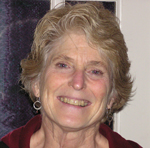 Judy Sears
Judy Sears
Judy Sears lives on the north coast of California near the Mendocino Triple Junction, where three tectonic plates grind below and past each other. Running north of the Triple Junction is the 700-mile long Cascadia subduction zone, believed to be capable of producing magnitude 9 earthquakes, which some geologists predict will occur within the next 50 years. A native Californian, Sears has always lived with threats of earthquakes, tsunamis, volcanic eruptions, torrential storms, and flooding—but it was her son’s schooling in New Orleans and his ambulance work that opened her eyes and coalesced into a passion to get her community disaster prepared.
In the summer of 2012, Sears will complete her master’s degree at Humboldt State University in Environment and Community. She researched the Community Emergency Response Team (CERT) training model to explore the efficacy of adapting the model to mitigate losses in rural coastal settings, which can be isolated from first responders and the rest of the state after disasters. From her research came a new question—what complement of personal and community action would include most people, empower them to make neighborhood connections, and build resilience to better prepare them for slow and rapid changes?
Sears has worked as the administrator of United States Servas, a national nonprofit organization; as the operations manager for World Shelters; as a public relations employee for a community college; and as a retailer, a tile setter, and a truck driver. All of these positions have lead her to seek collaborations in developing community strategies to prepare for, respond to, and recover from disasters. Sears is now community liaison for the fledgling Regional Training Institute—Community Disaster Preparedness, which provides preparedness training for residents in the five Northern California counties.
2011 Winners
Keya Mitra
 Keya Mitra has actively furthered the seismic safety agenda in India through the activities of the National Information Centre of Earthquake Engineering (NICEE), targeting, in particular, the architecture fraternity—both practicing professionals and students of architecture. She is serves on the National Advisory Committee of NICEE, IIT Kanpur, and has presented her research to India’s National Disaster Management Authority, as well as at national and international conferences.
Keya Mitra has actively furthered the seismic safety agenda in India through the activities of the National Information Centre of Earthquake Engineering (NICEE), targeting, in particular, the architecture fraternity—both practicing professionals and students of architecture. She is serves on the National Advisory Committee of NICEE, IIT Kanpur, and has presented her research to India’s National Disaster Management Authority, as well as at national and international conferences.
Mitra’s research focuses on how development regulations and building rules influence the earthquake safety of the structures in urban areas. She has developed a methodology for the rapid visual assessment for seismic evaluation of reinforced concrete (RC) frame buildings in India—the first attempt in India at developing an indigenous methodology for this kind of assessment. The methodology has been developed on the basis of actual damages sustained by RC frame buildings during the Bhuj Earthquake in 2001 and is the first time that actual building damage data has been used to develop an assessment method in India.
Mitra is an associate professor in the Department of Architecture at Bengal Engineering and Science University in Shibpur, India. She has a bachelor’s degree in architecture from B.E. College Shibpur and a master’s from the University of Wisconsin-Milwaukee. She obtained her PhD from Bengal Engineering and Science University Shibpur.
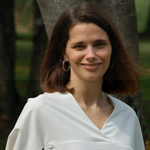 Véronique Morin
Véronique Morin
Morin is a doctoral student in the Disaster Preparedness, Mitigation and Management (DPMM) program at the Asian Institute of Technology in Bangkok, Thailand. She completed her undergraduate degree in civil engineering and has a master’s degree in water resources engineering from the University of Alberta, Canada. Morin has more than years of professional experience in coastal engineering and integrated coastal zone management.
Before joining the DPMM program, Morin was a project manager and senior coastal engineer with Smith Warner International, a consulting firm based in Kingston, Jamaica. She has managed projects throughout the Caribbean and Latin America, with emphasis on the design of coastal structures, coastal erosion, hurricane and storm surge mapping, and natural hazard and risk assessments.
Morin recently received a volunteer scientist position with Working Group II of the Intergovernmental Panel on Climate Change and will support the lead author team in preparing the Fifth Assessment Report. Her main research interests are assessing the impacts of climate change on coastal hazards and developing adaptation strategies for coastal communities in Small Island Developing States.2010 Winners
Deborah Colburn
 Deborah Colburn is the Director of the Animal Emergency Management Program at the Colorado Veterinary Medical Foundation, co-chair of a national best-practice working group on animal preparedness, and a former New Hampshire state representative. She has held leadership positions in for-profit and non-profit organizations and advised a variety of organizations on strategic planning, program management, government affairs, employee relations, and community outreach. Colburn supported the community recovery efforts of the American Red Cross Hurricane Recovery Program in Alabama from 2006-2008.
Deborah Colburn is the Director of the Animal Emergency Management Program at the Colorado Veterinary Medical Foundation, co-chair of a national best-practice working group on animal preparedness, and a former New Hampshire state representative. She has held leadership positions in for-profit and non-profit organizations and advised a variety of organizations on strategic planning, program management, government affairs, employee relations, and community outreach. Colburn supported the community recovery efforts of the American Red Cross Hurricane Recovery Program in Alabama from 2006-2008.
Colburn earned a bachelor’s in Sociology at Bowdoin College and a master’s in Public Administration at the University of New Hampshire. Her responsibilities at the Colorado Veterinary Medical Foundation include coordinating the animal emergency response efforts of the Colorado Veterinary Medical Reserve Corps, developing local animal response capacity, and addressing animal issues at the Colorado State Emergency Operations Center.
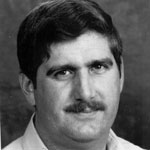 Scott Cotton
Scott Cotton
Scott Cotton is known for as a long-time disaster educator with first-hand response experience. He is constantly working toward better disaster preparedness, especially for agricultural and rural communities. With a research and education emphasis based on determining the most effective preparedness training and implementation, Cotton has taught disaster readiness to over 3,000 people in 100 counties.
Cotton is an extension educator at the University of Nebraska, focusing on livestock production, natural resource management, youth education, and disaster readiness. He’s been a deputy sheriff, emergency medical technician, search and rescue trainer, man-tracking trainer, structural and wildland firefighter, and extension leader at the University of Wyoming and Colorado State University.
Additionally, Cotton conducts agro-security seminars for the national Extension Disaster Education Network (EDEN) team, was a founder of the Colorado State Animal Response Team and the CSU Extension Disaster Education Program. He has taught the incident command system for 20 years.
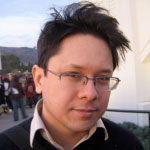 Peter Hanink
Peter Hanink
Peter Hanink is the director of programs at the Disaster Accountability Project, a graduate of Brooklyn Law School, and currently attends the Wagner School of Public Service at New York University, where he is working on a master’s in public administration. During law school, Hanink worked with the Legal Aid Society’s Criminal Defense Division, focusing on promoting the rights of indigent defendants. He became acquainted with DAP while serving as co-president of Brooklyn Law’s Student Hurricane Network.
Hanink has also interned for Judge Kathleen Tomlinson of the Eastern District of New York, the Clinton administration White House Office of Political Affairs, and taught public school. He was Director of Community Education for the Princeton Review of Los Angeles. His bachelor’s is from Loyola Marymount University in Los Angeles.
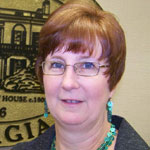 Terri Turner
Terri Turner
Terri Turner is a founding member and the outgoing chair of the Georgia Association of Floodplain Management, the Association of State Floodplain Managers No Adverse Impact Committee liaison, and chair of the Central Savannah River Area Planners Group. She has served as the assistant zoning and development administrator of the Augusta-Richmond County Planning Commission more than 12 years.
Turner has authored a white paper, numerous op-ed pieces, several ASFPM position letters, and a Natural Hazards Observer article. She has been very active in training other disciplines in No Adverse Impact and sound floodplain management. In her spare time, she promotes good floodplain management in Georgia and across the Southeast as a guest lecturer.
Turner has been honored by the GAFM many times, including awards for Outstanding Floodplain Manager and Distinguished Service, and the Meritorious Achievement Award for her work in coordinating training and volunteers after the September 2009 Metro Atlanta flood. She has also received the ASFPM Larry R. Johnson Memorial Local Floodplain Manager of the Year Award for promoting community outreach and flood mitigation.
2009 Winners
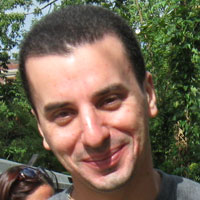 Alex Altshuler holds master’s degree in community social work from the University of Haifa and in social sciences and humanitarian affairs from the University of Rome. His bachelor’s is in behavioral sciences from Ben-Gurion University of the Negev in Israel.
Alex Altshuler holds master’s degree in community social work from the University of Haifa and in social sciences and humanitarian affairs from the University of Rome. His bachelor’s is in behavioral sciences from Ben-Gurion University of the Negev in Israel.
His master’s thesis was a first-of-its-kind empirical study of factors influencing local Israeli authorities' emergency preparedness for war-caused disaster. He plans to begin PhD studies about Israel's lack of earthquake preparedness soon.
He works as a regional project coordinator at the Israel Crisis Management Center, a nongovernmental organization assisting new immigrants faced with crisis or tragedy. Before that, he did community work with various populations, and was active in social entrepreneurship, enhancing emergency preparedness and response cooperation, and tutoring. His research has focused on various aspects of emergency preparedness and mitigation, intersector cooperation, trauma and immigration, and the development of new approaches for understanding complex emergencies. He is a true believer in the strength and kindness of human spirit.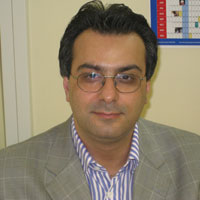 Dr. Ali Ardalan is an assistant professor of epidemiology at the Tehran University of Medical Sciences' Institute of Public Health Research and is founder of Iran’s first academic Health in Emergencies and Disasters department. He is also director of the Master of Public Health (MPH) program with a disaster concentration. His research interests focus on disaster epidemiology, community-based disaster risk management, and vulnerable groups in disasters.
Dr. Ali Ardalan is an assistant professor of epidemiology at the Tehran University of Medical Sciences' Institute of Public Health Research and is founder of Iran’s first academic Health in Emergencies and Disasters department. He is also director of the Master of Public Health (MPH) program with a disaster concentration. His research interests focus on disaster epidemiology, community-based disaster risk management, and vulnerable groups in disasters.
He worked with the World Health Organization after the Bam earthquake and was a guest researcher at the Karolinska Institute, Sweden. In 2009, he received the National Health Friend Award. His community-based research initiative on early warning of flash floods was named among the top projects in the National Development and Creativity Festival.
Dr. Ardalan is a contributor to the 2009 UN Global Assessment Report on Iran’s natural hazard analysis. Collaborating with the United Nations’ International Strategy for Disaster Reduction, WHO, and Iran’s health system, he initiated Hospitals Safe from Disasters campaign at the country level. He directs global education on natural disaster management through Supercourse, based at the University of Pittsburgh in Pennsylvania. Networking and building just-in-time lectures on the earthquakes in Bam, Pakistan, Indonesia, and China, the South Asian Tsunami, and Hurricane Katrina helped accomplished this collaboration.
Working with a multinational team with different ethnic and religious backgrounds has taught him how to build an environment of trust and friendship within a network of public health scholars and professionals worldwide.
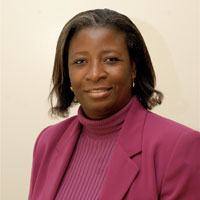 Oluponmile Olonilua is a visiting assistant professor of public administration at Texas Southern University's Barbara Jordan-Mickey Leland School of Public Affairs in Houston. She became involved in disaster research after personally experiencing Tropical Storm Allison in 2001.
Oluponmile Olonilua is a visiting assistant professor of public administration at Texas Southern University's Barbara Jordan-Mickey Leland School of Public Affairs in Houston. She became involved in disaster research after personally experiencing Tropical Storm Allison in 2001.
Her research interests include hazard mitigation plan evaluation and the effect of disasters on minorities and special populations. She has researched Tropical Storm Allison and evacuation problems during hurricane Katrina of 2005. Her dissertation, Towards Multihazard Mitigation: An Evaluation of FEMA-Approved Hazard Mitigation Plans under the Disaster Mitigation Act of 2000 (DMA2K), evaluated over 200 plans approved under DMA2K.
She is now working on implementation research as a follow-up to that evaluation and looking at the effect of state mandates on the DMA2K plans. She will begin a tenure track position as an assistant professor of public administration at TSU in the fall of 2008. She plans to teach emergency management.
2008 Winners
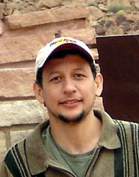 Edy M. Barillas holds a master’s degree in engineering geology from the Colorado School of Mines in Golden. He currently lives and works in Guatemala, but interacts with professionals and practitioners across Central America regarding disaster preparedness. His work focuses on landslides in urban areas, natural hazards zoning using Geographic Information Systems, and early warning systems for rain-triggered landslides. As an Oxfam Project Officer, his main responsibilities focus on community organization, training and equipment monitoring for rain; early warnings; and emergency response. He is interested in developing communication and coordination protocols that promote more efficient early warnings and emergency response between local community-based risk reduction committees and municipal and institutional representatives. His primary research interests include landslide susceptibility analysis and modeling, analysis of historical rainfall records, and rain thresholds for landslides triggering.
Edy M. Barillas holds a master’s degree in engineering geology from the Colorado School of Mines in Golden. He currently lives and works in Guatemala, but interacts with professionals and practitioners across Central America regarding disaster preparedness. His work focuses on landslides in urban areas, natural hazards zoning using Geographic Information Systems, and early warning systems for rain-triggered landslides. As an Oxfam Project Officer, his main responsibilities focus on community organization, training and equipment monitoring for rain; early warnings; and emergency response. He is interested in developing communication and coordination protocols that promote more efficient early warnings and emergency response between local community-based risk reduction committees and municipal and institutional representatives. His primary research interests include landslide susceptibility analysis and modeling, analysis of historical rainfall records, and rain thresholds for landslides triggering.
 Monalisa Chatterjee is a doctoral candidate in the Department of Geography at Rutgers University. Monalisa has a master's and master of philosophy from the Delhi School of Economics, University of Delhi and has worked on environmental degradation and the impact of cyclones on cities in India. Her dissertation, “Urban Flood Loss Sharing and Redistribution Mechanisms among the Impoverished Industrial Population of Mumbai,” examines informal coping methods of poor urban flood victims and studies the impact of globalization on the changing nature of coping strategies. In her research she explores the possibility of integrating poor populations with more formal mechanisms of risk redistribution and loss sharing. In future work, she intends to continue research applying scientific information to the human dimensions of natural hazards and public policy.
Monalisa Chatterjee is a doctoral candidate in the Department of Geography at Rutgers University. Monalisa has a master's and master of philosophy from the Delhi School of Economics, University of Delhi and has worked on environmental degradation and the impact of cyclones on cities in India. Her dissertation, “Urban Flood Loss Sharing and Redistribution Mechanisms among the Impoverished Industrial Population of Mumbai,” examines informal coping methods of poor urban flood victims and studies the impact of globalization on the changing nature of coping strategies. In her research she explores the possibility of integrating poor populations with more formal mechanisms of risk redistribution and loss sharing. In future work, she intends to continue research applying scientific information to the human dimensions of natural hazards and public policy.
 Charna R. Epstein directs the Crisis Prevention and Disaster Recovery Department at Heartland Alliance for Human Needs and Human Rights headquartered in Chicago. As part of her responsibilities, she helped lead the Chicagoland Katrina Relief Initiative. The initiative was responsible for the resettlement of approximately 10,000 Gulf Coast evacuees in greater Chicago. This nationally recognized initiative received more evacuees than any site outside of the South—none of the evacuees in Chicagoland went homeless. While her work still involves Katrina and Rita recovery, Epstein now spends the majority of her time on disaster planning and preparedness initiatives. A major project now underway involves the development of the first Metro-Chicago VOAD, bringing together partners from the public, private, and nonprofit sectors to collaborate and coordinate on all phases of disaster. Before assuming her current position, Epstein was a Fellow in Response and Recovery at the Region V Federal Emergency Management Agency. Prior to her work at FEMA, she spent four years working with immigrants and refugees. She received her bachelor’s degree with high honors from Brandeis University and her master’s in social service administration, with a focus on public policy and management, from the University of Chicago. Epstein is now in graduate school at the University of Chicago, studying for a master’s in threat and response management (2009 candidate).
Charna R. Epstein directs the Crisis Prevention and Disaster Recovery Department at Heartland Alliance for Human Needs and Human Rights headquartered in Chicago. As part of her responsibilities, she helped lead the Chicagoland Katrina Relief Initiative. The initiative was responsible for the resettlement of approximately 10,000 Gulf Coast evacuees in greater Chicago. This nationally recognized initiative received more evacuees than any site outside of the South—none of the evacuees in Chicagoland went homeless. While her work still involves Katrina and Rita recovery, Epstein now spends the majority of her time on disaster planning and preparedness initiatives. A major project now underway involves the development of the first Metro-Chicago VOAD, bringing together partners from the public, private, and nonprofit sectors to collaborate and coordinate on all phases of disaster. Before assuming her current position, Epstein was a Fellow in Response and Recovery at the Region V Federal Emergency Management Agency. Prior to her work at FEMA, she spent four years working with immigrants and refugees. She received her bachelor’s degree with high honors from Brandeis University and her master’s in social service administration, with a focus on public policy and management, from the University of Chicago. Epstein is now in graduate school at the University of Chicago, studying for a master’s in threat and response management (2009 candidate).
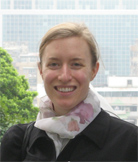 Molly Mowery received her master’s in city planning in 2008 from the Massachusetts Institute of Technology. Her research interests focus on natural hazards, sustainable development policy, and climate change adaptation. Specifically, her thesis analyzed the relationship between land use planning and wildfire mitigation. She also has worked on site planning in East Biloxi, Mississippi to address Hurricane Katrina recovery and landscape restoration efforts. Before pursuing graduate study, Mowery worked in land use planning at a law firm in Denver, Colorado. More recently, she has worked for the Scottish Government Planning Department and will return to Edinburgh as the Associate Director of an international consulting firm specializing in environmental planning and management projects. She has co-authored articles on tree preservation and outdoor lighting ordinances and has given a number of presentations worldwide. Mowery earned a bachelor of arts in psychology from Naropa University in Boulder, Colorado.
Molly Mowery received her master’s in city planning in 2008 from the Massachusetts Institute of Technology. Her research interests focus on natural hazards, sustainable development policy, and climate change adaptation. Specifically, her thesis analyzed the relationship between land use planning and wildfire mitigation. She also has worked on site planning in East Biloxi, Mississippi to address Hurricane Katrina recovery and landscape restoration efforts. Before pursuing graduate study, Mowery worked in land use planning at a law firm in Denver, Colorado. More recently, she has worked for the Scottish Government Planning Department and will return to Edinburgh as the Associate Director of an international consulting firm specializing in environmental planning and management projects. She has co-authored articles on tree preservation and outdoor lighting ordinances and has given a number of presentations worldwide. Mowery earned a bachelor of arts in psychology from Naropa University in Boulder, Colorado.
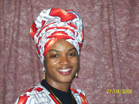 Uchenna Okoli is a native of Nigeria. She holds a bachelor of science degree in botany from the University of Benin-Nigeria, a postgraduate diploma in contemporary diplomacy from the University of Malta and is currently completing a master’s in disaster management and sustainable development at Northumbria University in Newcastle upon Tyne, United Kingdom. Her master’s thesis is a policy study of the strategies being implemented by the Nigerian government and other development organizations to address the socio-economic vulnerability of Nigerian women. Since 2003, her work has focused on raising awareness about the importance of disaster risk reduction and integrating a culture of safety in Nigeria through advocacy and capacity building. With particular emphasis on the development and implementation of policies that effectively address “soft” hazards, her work underscores the importance of people’s empowerment as a vital asset, especially for developing countries constantly grappling with scarce resources. Okoli has worked as a lead facilitator for a non-governmental organization and also served as a volunteer with the Institute of Safety Professionals of Nigeria and the Nigerian Red Cross Society, among others.
Uchenna Okoli is a native of Nigeria. She holds a bachelor of science degree in botany from the University of Benin-Nigeria, a postgraduate diploma in contemporary diplomacy from the University of Malta and is currently completing a master’s in disaster management and sustainable development at Northumbria University in Newcastle upon Tyne, United Kingdom. Her master’s thesis is a policy study of the strategies being implemented by the Nigerian government and other development organizations to address the socio-economic vulnerability of Nigerian women. Since 2003, her work has focused on raising awareness about the importance of disaster risk reduction and integrating a culture of safety in Nigeria through advocacy and capacity building. With particular emphasis on the development and implementation of policies that effectively address “soft” hazards, her work underscores the importance of people’s empowerment as a vital asset, especially for developing countries constantly grappling with scarce resources. Okoli has worked as a lead facilitator for a non-governmental organization and also served as a volunteer with the Institute of Safety Professionals of Nigeria and the Nigerian Red Cross Society, among others.
2007 Winners
Steve Samuelson works as Zoning Administrator, Floodplain Manager, Residential Data Collector for the Appraiser, and Grant Writer for Lyon County, Kansas. Steve started working for Lyon County in December of 2005. Since then, his accomplishments have included rewriting the floodplain regulations for Lyon County, enrolling the county in the Community Ratings System, writing a comprehensive hazard mitigation plan for all the jurisdictions within the county, successfully appealing problems in new Flood Insurance Rate Maps, and negotiating for certification of the levee that protects Hartford, Kansas. In addition, he spoke at the State Association of Kansas Watersheds conference about how to use zoning and land use planning to prevent construction in dam breach inundation areas, even when a county has no zoning or building permits.
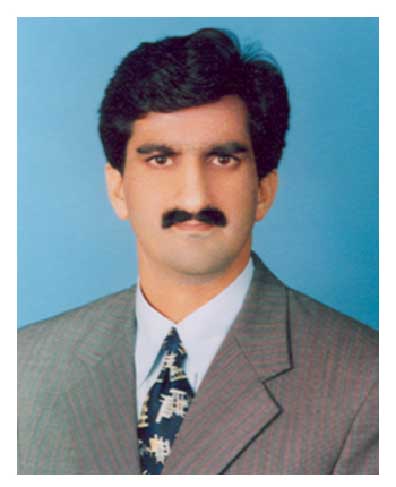 Saeed Ashraf Siddiqi is Programme Manager (social protection) at the Earthquake Reconstruction and Rehabilitation Authority (ERRA) for the Government of Pakistan in Islamabad. Following the most debilitating earthquake in Pakistan’s history on October 5, 2005, the Government of Pakistan established ERRA with the mandate to work on a comprehensive response to devastation caused by the earthquake. Saeed has a background in development and governance issues, and holds Masters' degrees in English and Governance & Development Management. With Saeed's leadership, ERRA has initiated useful programs, such as medical rehabilitation of the disabled in affected areas, distribution of compensation to people who lost land during the earthquake, provision of legal assistance to vulnerable groups, and rehabilitation programs for widows and children.
Saeed Ashraf Siddiqi is Programme Manager (social protection) at the Earthquake Reconstruction and Rehabilitation Authority (ERRA) for the Government of Pakistan in Islamabad. Following the most debilitating earthquake in Pakistan’s history on October 5, 2005, the Government of Pakistan established ERRA with the mandate to work on a comprehensive response to devastation caused by the earthquake. Saeed has a background in development and governance issues, and holds Masters' degrees in English and Governance & Development Management. With Saeed's leadership, ERRA has initiated useful programs, such as medical rehabilitation of the disabled in affected areas, distribution of compensation to people who lost land during the earthquake, provision of legal assistance to vulnerable groups, and rehabilitation programs for widows and children.
Yu Xiao is a PhD candidate in the Department of Urban and Regional Planning at the University of Illinois at Urbana-Champaign. She has education in planning, regional science, computer simulation modeling, and applied econometrics, and has researched economic impacts of disasters for the Mid-America Earthquake Center. Her current research focuses on empirically assessing the short- to long-run social and economic impacts of the 1993 Midwest Flood on various types of communities. She hopes to continue empirical disaster research in both developed and developing countries, such as her home country, China.
2006 Winners
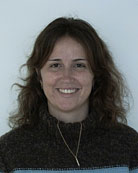 Aurélie Brunie is a PhD candidate in city and regional planning at the University of North Carolina at Chapel Hill. Originally from France, she has an engineering degree from the Ecole Centrale de Lyon and a master of science in environmental pollution control from Pennsylvania State University. Brunie specializes in social capital, collective action, empowerment, and disasters, focusing particularly on how assistance programs can take advantage of existing structures to achieve more equitable and sustainable outcomes. Her dissertation examines the importance of disaster management capacity building, social capital, local leadership, and middle-level institutions in the sustainability of community preparedness efforts in underdeveloped countries.
Aurélie Brunie is a PhD candidate in city and regional planning at the University of North Carolina at Chapel Hill. Originally from France, she has an engineering degree from the Ecole Centrale de Lyon and a master of science in environmental pollution control from Pennsylvania State University. Brunie specializes in social capital, collective action, empowerment, and disasters, focusing particularly on how assistance programs can take advantage of existing structures to achieve more equitable and sustainable outcomes. Her dissertation examines the importance of disaster management capacity building, social capital, local leadership, and middle-level institutions in the sustainability of community preparedness efforts in underdeveloped countries.
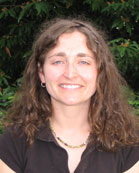 Elenka Jarolimek is an emergency management specialist at the University of Washington in Seattle. Her professional accomplishments include co-organizing Symposium 2005: Best Practices in Risk Reduction for Colleges and Universities and co-managing the University of Washington’s “Report on Emergency Preparedness for Special Needs Populations.” She is currently working on designing a model mitigation program to help departments and college units address seismic and storm-related risks and developing emergency preparedness training programs for students, staff, and faculty. Jarolimek has a bachelorís degree in political science from Metropolitan State College of Denver and a masterís in urban planning from the University of Washington.
Elenka Jarolimek is an emergency management specialist at the University of Washington in Seattle. Her professional accomplishments include co-organizing Symposium 2005: Best Practices in Risk Reduction for Colleges and Universities and co-managing the University of Washington’s “Report on Emergency Preparedness for Special Needs Populations.” She is currently working on designing a model mitigation program to help departments and college units address seismic and storm-related risks and developing emergency preparedness training programs for students, staff, and faculty. Jarolimek has a bachelorís degree in political science from Metropolitan State College of Denver and a masterís in urban planning from the University of Washington.
 Alessandra Jerolleman works on mitigation, community outreach, and disaster planning at the Center for Hazards Assessment, Response, and Technology at the University of New Orleans. She has worked on projects benefiting the New Orleans area, including completing benefit-cost analyses for the potential retrofitting of university buildings, flood mitigation planning for several suburban New Orleans neighborhoods, identifying and implementing outreach projects for the Disaster Resistant University project, and conducting community outreach related to the Hazard Mitigation Grant Program. Jerolleman is completing a masterís in public administration at the University of New Orleans and will begin work on a PhD in urban studies in the fall. Her dissertation will focus on hazards planning for school districts in disaster prone area.
Alessandra Jerolleman works on mitigation, community outreach, and disaster planning at the Center for Hazards Assessment, Response, and Technology at the University of New Orleans. She has worked on projects benefiting the New Orleans area, including completing benefit-cost analyses for the potential retrofitting of university buildings, flood mitigation planning for several suburban New Orleans neighborhoods, identifying and implementing outreach projects for the Disaster Resistant University project, and conducting community outreach related to the Hazard Mitigation Grant Program. Jerolleman is completing a masterís in public administration at the University of New Orleans and will begin work on a PhD in urban studies in the fall. Her dissertation will focus on hazards planning for school districts in disaster prone area. 2005 Winners
Choong, from Melbourne, Australia, has a background in international development and has worked in Bangladesh, Fiji, Lao PDR, Thailand and East Timor on development
issues such as food security, poverty alleviation, and natural disaster risk management. Over the past two years she has worked at
the Asian Disaster Preparedness Center (ADPC) in Bangkok, Thailand, as both a research intern and as part of an Australian Government
program - Australian Youth Ambassadors for Development. She has also served as an external evaluator for a disaster prevention and
livelihood security project for CARE International in Lao PDR. Through research focused on reducing natural disaster risks at the
community level, Choong has developed interests in disasters and development, community based disaster risk management, public
awareness and education, and the exploration of indigenous coping strategies. In her pursuit of these interests, she hopes
to continue contributing to the existing body of knowledge while working practically at a grass roots level to further reduce risks
in developing countries.
Membreno is a civil engineer who recently finished her master of science in
rural planning and development at the University of Guelph in Canada. She
chose to pursue this degree after working in her native Honduras as a
project manager for reconstruction projects in the wake of Hurricane Mitch.
Throughout her studies, she pursued an interest in floodplain management
(looking specifically at vulnerability reduction measures, institutional
capacity building, and promotion of community participation) and is a
certified floodplain manager. During the summer of 2004, she did a 12-week
internship with the Natural Hazards Project at the Unit of Sustainable
Development and Environment of the Organization of the American States in
Washington, DC. Through this work, Membreno was encouraged to further pursue
vulnerability reduction issues with the possibility of implementing a
floodplain manager certificate program for Honduras. Currently she is
conducting environmental assessment consistency analyses for Yap
Environmental Systems Analysis Limited-Guelph and hoping to return to
Honduras to work on development projects in the area of disaster management.
2004 Winner
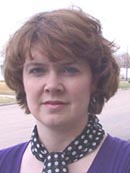
Becky Ault lives in North Dakota. She has been Emergency Manager/9-1-1 Coordinator for Pembina County since 1995 and has led the county through ten Presidential Disaster Declarations during her tenure. She is also very active with GIS and computer mapping issues, mitigation activities, and helping implement the 9-1-1 system countywide.
Becky has worked to create a multi-functional digitized mapping system for the county, which is currently in use in multiple departments. The system has the capability of linking with 9-1-1 dispatch (emergency response), mitigation planning, zoning issues, repetitive loss tracking, election precinct mapping, water resources mapping, and parcel information. In addition to creating the system, Becky has been active in knowledge sharing and technology transfer with other North Dakota agencies as well as other states and federal agencies.
Pembina County is small and has limited resources. Becky has been very proactive in seeking out alternative revenue sources for the county and she successfully pursues funding for projects that directly benefit the citizens of the county and reduce private and public property damage, promote public safety, and reduce the impact of extreme environmental events. She has managed projects funded by Hazardous Materials Emergency Planning Grants (1995-present), the Pre-Disaster Mitigation Grant Program sponsored by the Federal Emergency Management Agency, and the Public Safety Foundation of America, and she provided research and administrative support for the county's Project Impact grant.
Some of her other efforts include a variety of mitigation projects along the Red River, updating the county wide warning system, and assisting with the county StormReady designation from the National Oceanic and Atmospheric Administration. In addition, she has received numerous awards of excellence, been active in a variety of professional associations, and has served her community in a variety of capacities related to emergency management, public safety, communications, GIS, and warning technology.
Becky Ault was chosen as the recipient of the 2004 MFM Scholarship in recognition of her ability, enthusiasm, and creativity. She was nominated by colleagues from the Association of State Floodplain Managers, a nationally respected organization of professionals involved in floodplain management; flood hazard mitigation; the National Flood Insurance Program; and flood preparedness, warning, and recovery. The Hazards Center is proud to inaugurate the MFM Scholarship by awarding the first scholarship to someone who so closely embodies the spirit of Mary Fran Myers' work.

